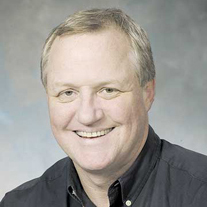Are We There Yet?
September 14-20, 2015
KM and I arrived in Oxford, Miss., on a Saturday afternoon more than a few months back. She navigated us to the Hampton Inn, a couple of miles from the Ole Miss campus.
While checking in, I ate a chocolate chip cookie the lady working there wanted us to try. I asked where our room was and she laughed, like I was kidding around or had chocolate on my face. Finally, still giggling, she told me the way.
KM led through the double glass doors and I slowed again at the cookies. Giggling cookie pusher told me to take another but I declined. “Great willpower,” I thought as the chocolate lingered in and around my mouth.
We had come to see Rowan Oak, the estate William Faulkner purchased back in the 1930s for his personal home. He lived there, on and off, for three decades, with his family and an old black woman named Mammy, who had her own home near the main house.
We couldn’t get into Mammy’s cabin, but I stepped onto the big front porch and peeked through the dirty window. All I saw was a fireplace and a few pieces of simple furniture.
In the main house – in the room where his desk sat - some golf clubs leaned against the wall, next to a fireplace. From 1921 to 1924, when he worked as postmaster at the University of Mississippi, young Faulkner took afternoons off to play golf. I never heard if he was any good, and figured I could have taken him.
On the desk by a typewriter was a book. I asked Sarah, the young girl who worked there, what it was. She didn’t know but was kind enough to pass by the waist-high, clear plastic half-bubble barrier that blocks entry to this room to find out.
Sarah told me there had been many of Faulkner’s ashtrays and pipes throughout the house, but they had started to disappear, later appearing on eBay (the reason, I guessed, for the bubble barriers).
The book, Sarah said, was “A Writer’s Market.”
“Is the typewriter an Underwood?” I asked. (I already knew it was. This is where the middle-age man is trying to impress the 20-something co-ed. Pathetic.)
“Why, yes, it is,” she smiled, as KM and her shaking head walked away.
We went upstairs and looked in all of the rooms, in all of the glass cases in the big hallway, and at the mementos, which had been saved from parts of the Nobel Prize laureate’s life. When he accepted the prize in Stockholm in 1950, Faulkner said, “I feel that this award was not made to me as a man, but to my work – a life’s work in the agony and sweat of the human spirit, not for glory and least of all for profit, but to create out of the materials of the human spirit something which did not exist before.”
After reading that, I wondered if his success was more from that agony and sweat, or more from a divine gift. On returning home, I found another quote from him made during an interview in the Paris Review back in 1956, which answered some of my question: “Let the writer take up surgery or bricklaying if he is interested in technique. There is no mechanical way to get the writing done, no shortcut. The young writer would be a fool to follow a theory. Teach yourself by your own mistakes; people learn only by error. The good artist believes that nobody is good enough to give him advice. He has supreme vanity. No matter how much he admires the old writer, he wants to beat him.”
Likely, a fire like that would carry over to the links.
Jay Edwards is editor-in-chief of the Daily Record. Contact him at jedwards@dailydata.com.



